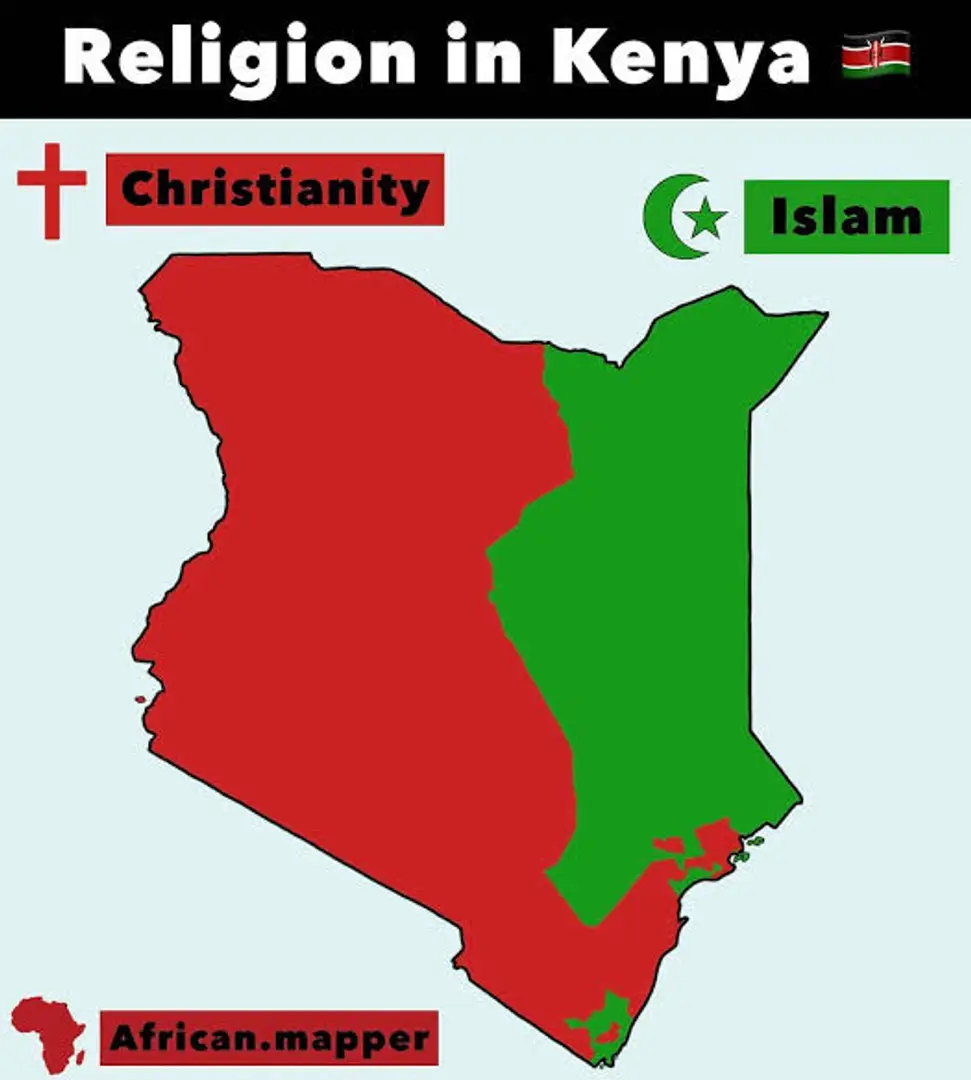

Religion in Kenya
Religion plays a significant role in the cultural and social fabric of Kenya, influencing various aspects of life including politics, education, and community relations. The country is known for its religious diversity, with the major religions being Christianity, Islam, and traditional African religions.
Christianity
Christianity is the predominant religion in Kenya, with approximately 85% of the population identifying as Christians. The main denominations include:
- Catholicism: The Roman Catholic Church has a significant presence in Kenya, with numerous parishes and schools across the country. The church is involved in various social and educational initiatives.
- Protestantism: This includes a variety of denominations such as Anglican, Baptist, Pentecostal, and evangelical churches. The Kenya Evangelical Alliance represents many of these groups and plays a role in social advocacy.
- Apostolic and African Independent Churches: These churches often incorporate traditional African beliefs and practices into their worship, reflecting the syncretic nature of religion in Kenya.
Islam
Islam is the second-largest religion in Kenya, with about 11% of the population being Muslims. The majority of Kenyan Muslims are Sunni, and the religion is particularly prevalent in the coastal regions, such as Mombasa and Lamu, as well as among the Somali and Swahili communities. Key aspects include:
- Religious Practices: Muslims in Kenya observe the five pillars of Islam, including daily prayers (Salah), fasting during Ramadan, and pilgrimage (Hajj).
- Community and Social Services: Islamic organizations in Kenya often engage in charitable activities, providing education and healthcare to underserved populations.
Traditional African Religions
Despite the influence of Christianity and Islam, traditional African religions still play a crucial role in the lives of many Kenyans, especially among indigenous communities. These religions are characterized by:
- Spiritual Beliefs: Traditional beliefs often involve a connection to ancestors, nature, and spirits. Rituals and ceremonies are conducted to honor these entities and seek their guidance.
- Healing Practices: Many people still consult traditional healers for physical and spiritual ailments, blending these practices with other religious beliefs.
Religious Tolerance and Interfaith Relations
Kenya is known for its relatively high level of religious tolerance compared to other countries in the region. Interfaith dialogue is encouraged, and various organizations work towards promoting understanding and cooperation among different religious groups. Events such as the Interfaith Peace Conference have been organized to address issues of social cohesion and conflict resolution.
Challenges
Despite the overall tolerance, Kenya faces challenges related to religious extremism, particularly in the coastal regions and areas bordering Somalia. The rise of radical groups has led to concerns about security and inter-community relations. Additionally, there are ongoing debates about the role of religion in politics, with some advocating for a secular state while others call for the integration of religious values into governance.
Conclusion
Religion in Kenya is a complex and dynamic aspect of the nation's identity. The coexistence of various faiths contributes to the rich cultural tapestry of the country, while also presenting challenges that require ongoing dialogue and cooperation. Understanding the religious landscape of Kenya is essential for fostering peace and unity in this diverse nation.
For further reading, you may refer to:
Related Posts
© 2025 Invastor. All Rights Reserved

User Comments